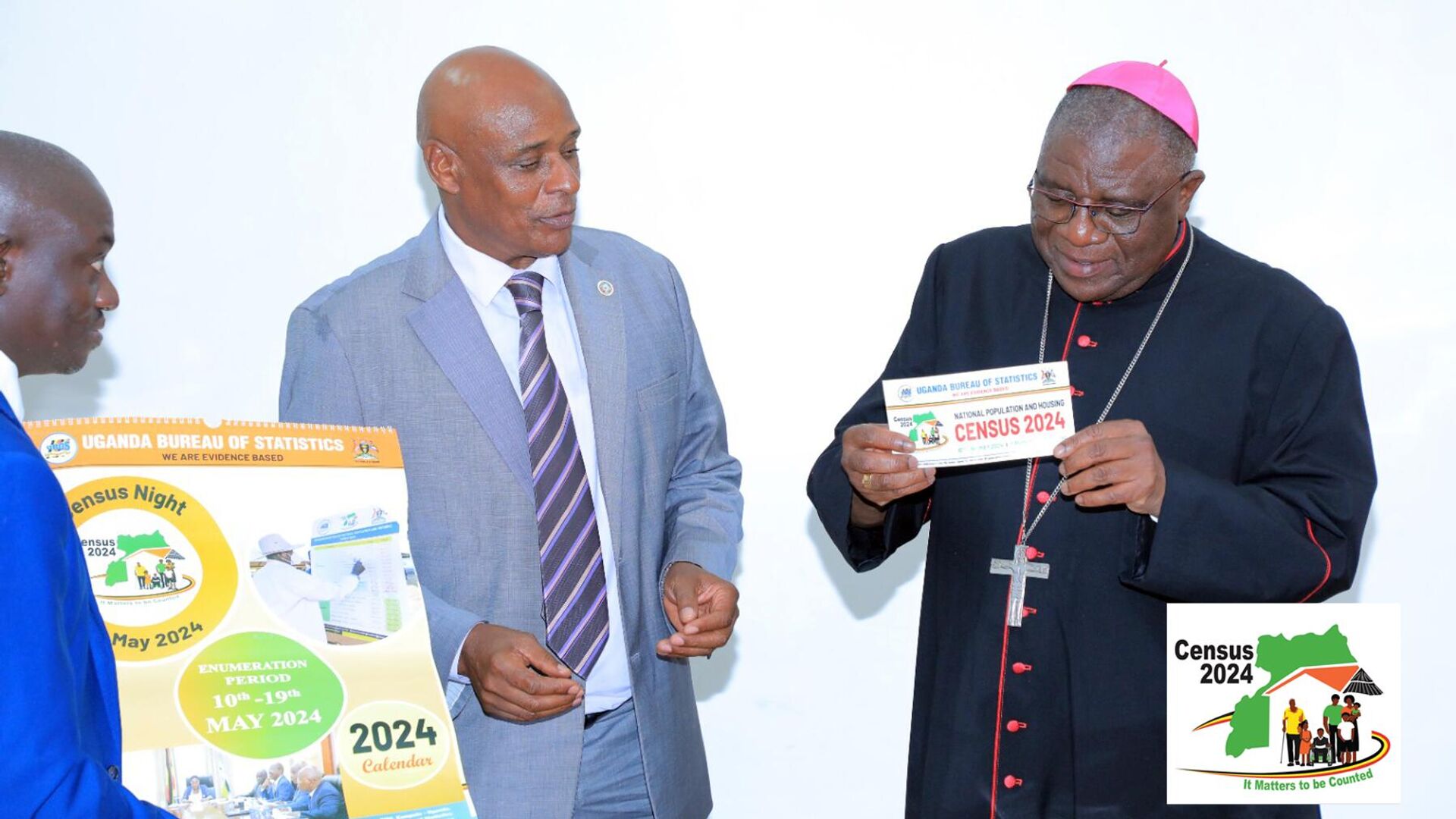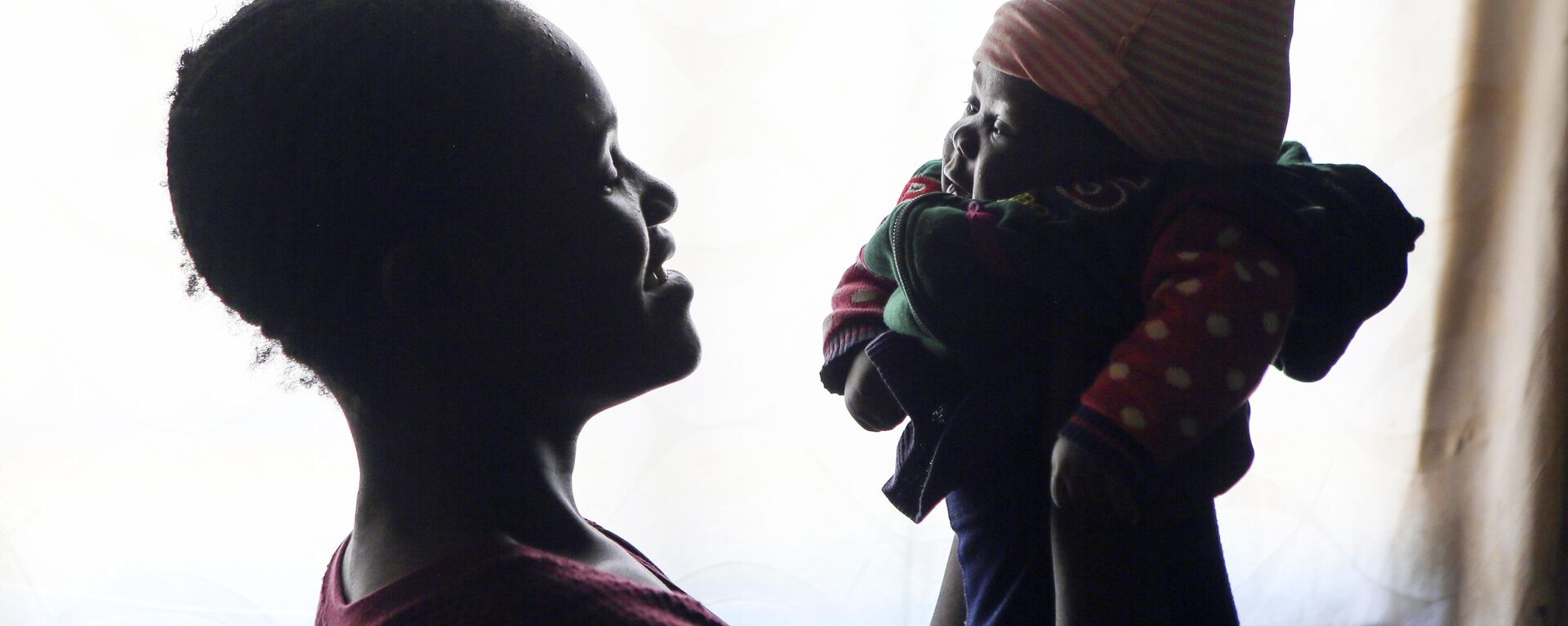https://en.sputniknews.africa/20240503/uganda-will-conduct-its-first-digital-census-asking-residents-178-questions-in-total-1066352392.html
Uganda Will Conduct Its First Digital Census, Asking Residents 178 Questions in Total
Uganda Will Conduct Its First Digital Census, Asking Residents 178 Questions in Total
Sputnik Africa
Uganda conducts a national census every decade, with the most recent one taking place in 2014. The census data plays a crucial role in directing planning... 03.05.2024, Sputnik Africa
2024-05-03T16:51+0200
2024-05-03T16:51+0200
2024-05-03T19:39+0200
sub-saharan africa
uganda
east africa
population
life expectancy
survey
census
demography
https://cdn1.img.sputniknews.africa/img/07e8/05/03/1066353698_0:146:1800:1159_1920x0_80_0_0_1a908b442cb8052fda4c328553926b87.jpg
Uganda will begin its first digital census next week, during which residents of the East African country will have to answer 178 questions.The census will take place from May 9 to May 19. Respondents will be required to provide biographical, economic, and social information, among other things, according to the official documents.For example, households will be asked about their economic activities, how much they earn and save, how much land and other resources they have, and access to government poverty alleviation programs.The survey will assess the level of literacy of the population as well as the accessibility of the Internet and mobile devices.Women will be asked about the number of children they have to determine average fertility in Uganda. In addition, questions will be asked about bereavement to determine life expectancy in the country, as well as compare the life expectancy of women with that of men.The census will also help update information on the religious and ethnic composition of the population. Respondents will be asked to say which tribe and clan they belong to, as well as what religion they profess.The event will cover not only citizens of the country but generally everyone who will be there during the census period, that is, even refugees and foreigners. The latter will need to know their nationality and why they left their homelands.Furthermore, the census will allow the government to determine social services, transport facilities and the quality of services offered.Information regarding children's immunizations, age, and parental status will be collected as well.Households, institutions, homeless people, residences and communities will be surveyed as part of the census.How Will the Government Collect Data?This year's population and housing census is unique as it will be the first time that the Uganda Bureau of Statistics will use digital technology to collect, process and disseminate census results. For this purpose, about 120,000 tablet computers have been purchased and have already begun to be distributed in districts of Uganda.114,460 enumerators and 18,483 supervisors are expected to participate in the census.The digital census will allow the country to obtain accurate and timely demographic, social and economic data, local media reported, citing Amos Kankunda, the chairperson of the parliamentary committee on Finance, Planning and Economic Development. In addition, digital devices will facilitate the process of data disaggregation and allow information to be transmitted to analysis centers in real time.After the census is completed, the tablets will be used in other government programs and activities, including elections.The decision to digitalize the census is in line with Uganda's digital transformation agenda.
https://en.sputniknews.africa/20240314/namibias-population-has-grown-to-more-than-3-million-representing-annual-growth-rate-of-3-1065548044.html
uganda
east africa
Sputnik Africa
feedback@sputniknews.com
+74956456601
MIA „Rossiya Segodnya“
2024
Christina Glazkova
https://cdn1.img.sputniknews.africa/img/07e7/0b/07/1063380906_0:0:673:674_100x100_80_0_0_79628b4d0cd9f29291a57aa13bbf9e7a.jpg
Christina Glazkova
https://cdn1.img.sputniknews.africa/img/07e7/0b/07/1063380906_0:0:673:674_100x100_80_0_0_79628b4d0cd9f29291a57aa13bbf9e7a.jpg
News
en_EN
Sputnik Africa
feedback@sputniknews.com
+74956456601
MIA „Rossiya Segodnya“
Sputnik Africa
feedback@sputniknews.com
+74956456601
MIA „Rossiya Segodnya“
Christina Glazkova
https://cdn1.img.sputniknews.africa/img/07e7/0b/07/1063380906_0:0:673:674_100x100_80_0_0_79628b4d0cd9f29291a57aa13bbf9e7a.jpg
uganda, east africa, population, life expectancy, survey, census, demography
uganda, east africa, population, life expectancy, survey, census, demography
Uganda Will Conduct Its First Digital Census, Asking Residents 178 Questions in Total
16:51 03.05.2024 (Updated: 19:39 03.05.2024) Christina Glazkova
Writer / Editor
Uganda conducts a national census every decade, with the most recent one taking place in 2014. The census data plays a crucial role in directing planning, formulating policies, implementing programs, and assessing progress in line with national goals and objectives, according to the government.
Uganda will begin its first
digital census next week, during which residents of the East African country will have to answer 178 questions.
The census will take place from May 9 to May 19. Respondents will be required to provide biographical, economic, and social information, among other things, according to the official documents.
For example, households will be asked about their economic activities,
how much they earn and save, how much land and other resources they have, and access to government poverty alleviation programs.
The survey will assess the level of literacy of the population as well as the accessibility of the Internet and
mobile devices.
Women will be asked about the number of children they have to determine average fertility in
Uganda. In addition, questions will be asked about bereavement to determine life expectancy in the country, as well as compare the life expectancy of women with that of men.
The census will also help update information on the religious and ethnic composition of the population. Respondents will be asked to say which tribe and clan they belong to, as well as what religion they profess.
The event will cover not only citizens of the country but generally everyone who will be there during the census period, that is, even
refugees and foreigners. The latter will need to know their nationality and why they left their homelands.
Furthermore, the census will allow the government to determine social services,
transport facilities and the quality of services offered.
Information regarding children's
immunizations, age, and parental status will be collected as well.
Households, institutions, homeless people, residences and communities will be surveyed as part of the census.
How Will the Government Collect Data?
This year's population and housing census is unique as it will be the first time that the Uganda Bureau of Statistics will use
digital technology to collect, process and disseminate census results. For this purpose, about 120,000 tablet computers have been purchased and have already begun to be distributed in districts of Uganda.
114,460 enumerators and 18,483 supervisors are expected to participate in the census.
The digital census will allow the country to obtain accurate and timely demographic, social and economic data, local media reported, citing Amos Kankunda, the chairperson of the parliamentary committee on Finance, Planning and Economic Development. In addition, digital devices will facilitate the process of data disaggregation and allow information to be transmitted to analysis centers in real time.
After the census is completed, the tablets will be used in other government programs and activities, including
elections.
The decision to digitalize the census is in line with Uganda's digital transformation agenda.



